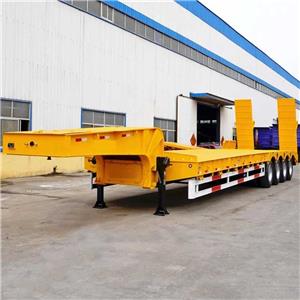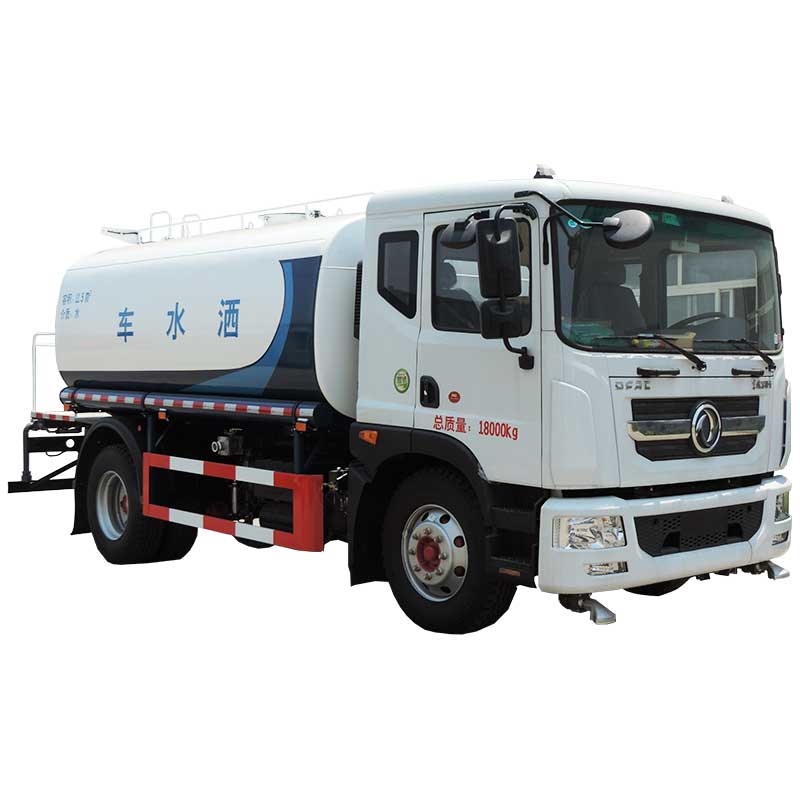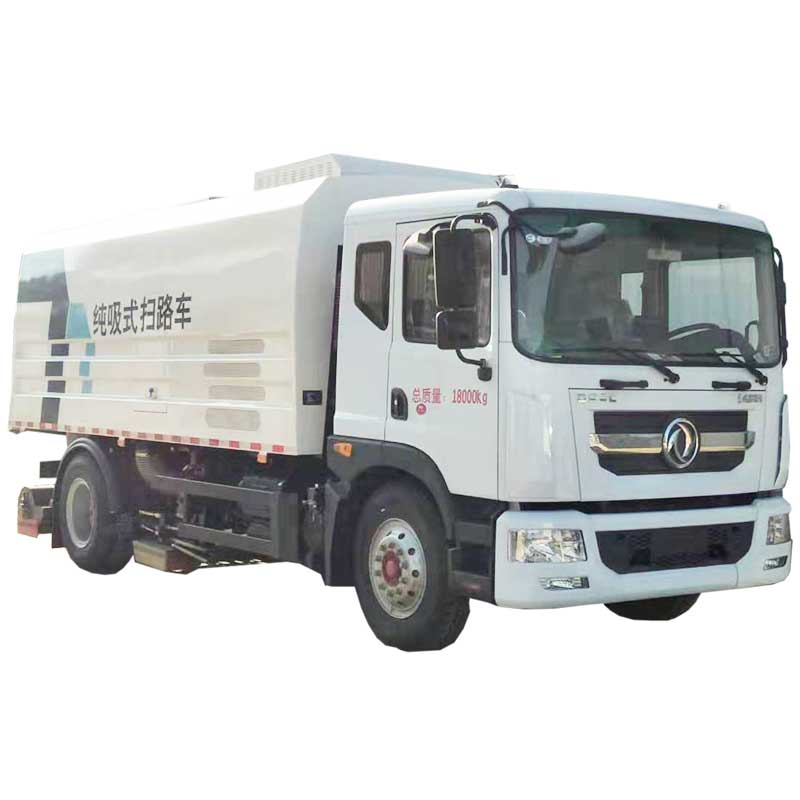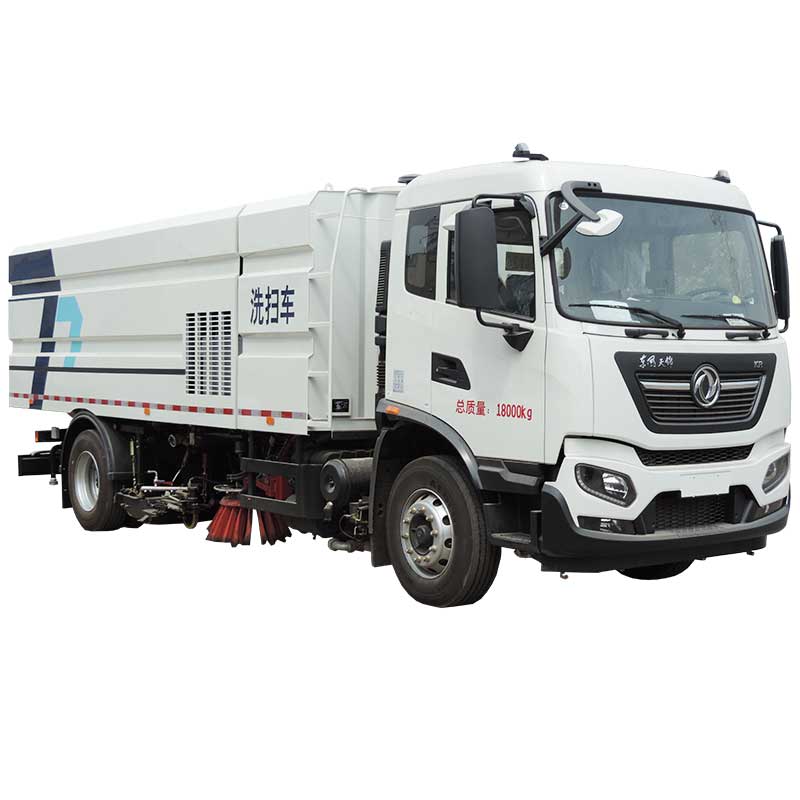Trailer 101: How to Choose the Right Equipment Trailers?
2024-03-04 03:15
Equipment trailers generally refer to trailers specifically designed to transport various types of equipment or machinery. These trailers usually have a sturdy structure and sufficient load capacity to ensure safe transportation of heavy equipment and machinery.
Equipment trailers generally refer to trailers specifically designed to transport various types of equipment or machinery. These trailers usually have a sturdy structure and sufficient load capacity to ensure safe transportation of heavy equipment and machinery. Equipment trailers are typically designed to facilitate loading and unloading of equipment and may be equipped with various lifting equipment, fixtures or support structures to ensure that the equipment remains stable and safe during transportation.
Different types of equipment trailers
Equipment trailers come in many different styles, and some may suit your needs better than others.
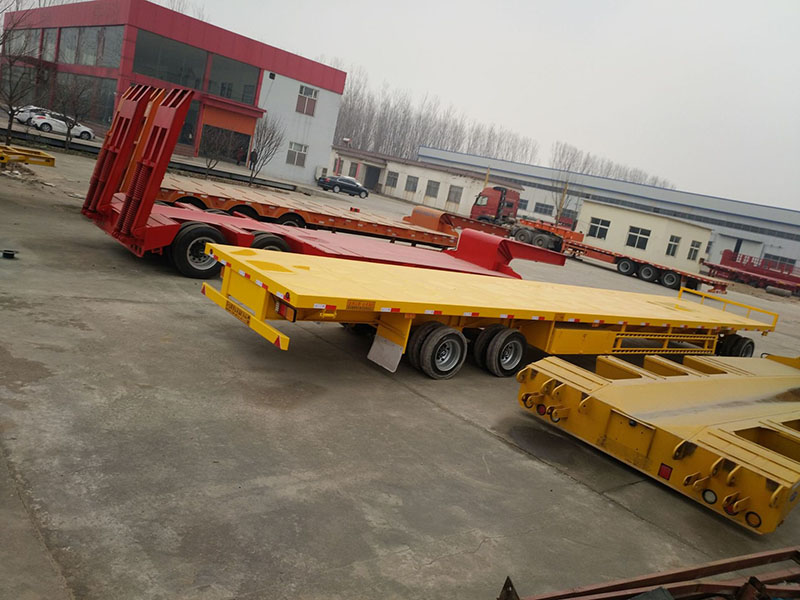
Equipment trailers include the following types:
Flatbed Equipment Trailers: A flatbed trailer is a simple trailer that usually consists of a flat platform without any fences or walls. They are suitable for transporting various large equipment and machinery, such as excavators, loaders, forklifts, etc. Flatbed trailers provide a convenient way to load and unload, but during transportation, the cargo is exposed to the outside and requires additional protection.
Enclosed Equipment Trailer: An enclosed equipment trailer is a trailer designed to provide an enclosed space when transporting cargo. Enclosed trailers are better able to protect cargo from weather, dust, theft and other external factors during transportation than open trailers. This type of trailer usually has fixed side walls and roof, forming a closed box structure.
Gooseneck Equipment Trailers: Gooseneck equipment trailer usually refers to "Gooseneck Lowboy Trailer", also known as "Gooseneck Heavy Equipment Trailer" or "Neck Trailer" . This type of trailer is usually used to transport heavy and large equipment such as construction machinery, agricultural machinery, engineering vehicles, etc.
Heavy Equipment Trailers: Heavy equipment trailer usually refers to "Heavy Equipment Lowboy Trailer",also known as "Heavy Duty Equipment Trailer" .This type of trailer has a higher load capacity and is often used to transport particularly heavy equipment and machinery, such as large excavators, cranes, etc.
Small Equipment Trailer: A small equipment trailer is a trailer specifically designed to transport light or small equipment, tools, and cargo. These trailers typically have compact dimensions and lightweight construction, making them suitable for small vehicle towing and narrow haul roads.
Lowboy Equipment Trailers: A low-profile trailer is similar to an ordinary flatbed trailer, but its platform height is lower and usually has a sunken platform, making loading and unloading more convenient. It is especially suitable for loading and transporting equipment and machinery with a larger height.
Dump Equipment Trailer: A dump equipment trailer is a type of trailer specially designed for transporting and unloading cargo. It is usually used to transport large items such as construction materials, soil, gravel, etc. This type of trailer usually has a tilt cargo box that allows for easy unloading by unloading the cargo. Dump equipment trailers are very common in the construction, agriculture and logistics industries to increase transportation efficiency and reduce labor costs.
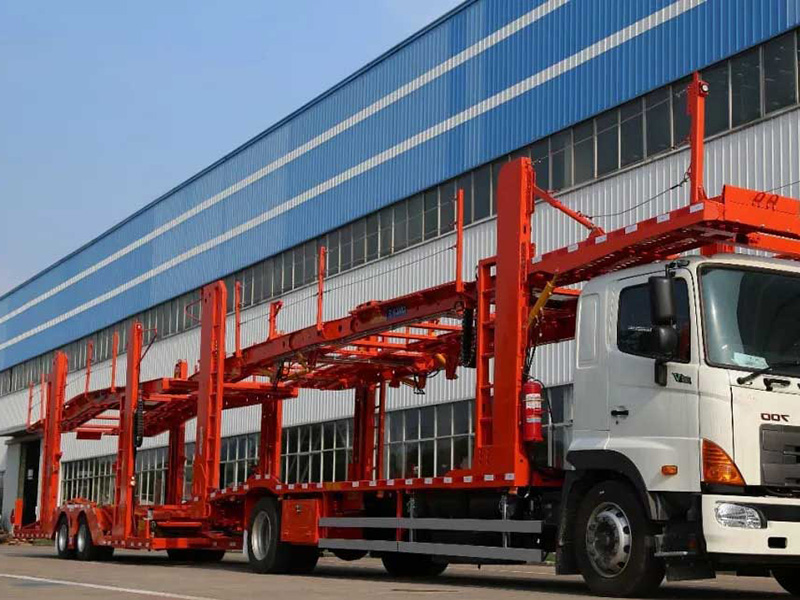
What is the difference between a car trailer and an equipment trailer?
Car trailers are often used to tow another vehicle carrying a vehicle in order to transport it to its destination. This type of trailer is typically used to transport cars, motorcycles, or other small vehicles.
Equipment trailers are used to tow or transport various types of equipment, machinery or goods, such as construction machinery, agricultural machinery, construction materials, etc. Equipment trailers are typically designed to be stronger and more durable in order to carry heavy equipment or cargo, while car trailers are more focused on providing a safe and convenient way to transport vehicles.
What type of equipment do you transport?
While many trailers can transport many different types of equipment, you still need to consider the primary type of equipment you will be pulling. Consider the types and quantities of equipment and tools you typically bring to a job site or other location.
When choosing a trailer, you can customize it with different parts or accessories to suit your needs. This includes custom tires, toolboxes, built-in workspaces and specialized interior lighting. You may also want to consider the height of your trailer based on these factors.
How much weight do you need to haul?
An important question to help you find the perfect trailer is how much weight you plan to tow. If you end up putting more weight on your trailer than it can handle, it can cause cracks in the axles and frame, making it impossible for you to safely use your trailer anymore.
To avoid damaging your tow vehicle’s frame, engine, tires, and transmission, you need to consider payload capacity and towing capacity.
What is the best trailer for your vehicle?
You also need to consider the vehicle you plan to use to tow your trailer. It's not just a question of whether your vehicle can tow a trailer, but a bigger question than whether your vehicle can tow a trailer when fully loaded. It's important to know how much weight your vehicle can handle rather than assuming it will work properly.
If the torque ratio is insufficient to tow a trailer, the transmission may burn out and the engine may be put under a lot of stress.
Which suspension is best for you?
Generally speaking, the suspension of semi-trailers can be divided into four main types:
1. Rigid suspension.
The body chassis of the rigid suspension acts directly on the axle between the wheels, without springs as buffers. When the road surface is uneven, it completely relies on the swing of the balance beam to maintain the relative balance of the front and rear axles.
This kind of suspension is relatively rare at present because its shock absorption effect is very poor. It is mainly used on low-bed semi-trailers that carry cargo at low speeds.
2. Steel plate suspension.
Also known as tandem leaf spring balance suspension, it is also a common leaf spring suspension, which is mainly composed of leaf springs, suspension supports, connecting rods, U-bolts, etc.
The biggest advantages of this kind of trailer suspension are low cost, reliable operation and easy maintenance. Because of this, steel plate suspension is currently used in the largest proportion of domestic semi-trailers, about 70-80%.
3. Single point suspension.
That is to say, the common front and rear brackets of leaf springs are reduced to a single bracket and connected to the vehicle body. The stress points can be equally divided into different axles, so the load-bearing capacity is larger, and it is generally used on heavy-duty trailers.
4. Air suspension.
Also called airbag suspension, its most significant feature is the airbag air spring. Compared with other suspensions, air suspension has better buffering force, which can effectively protect cargo and improve driving comfort. It is currently mainly used. In the transportation of precision instruments, hazardous chemicals, etc.
How much does an equipment trailer weigh?(for reference only)
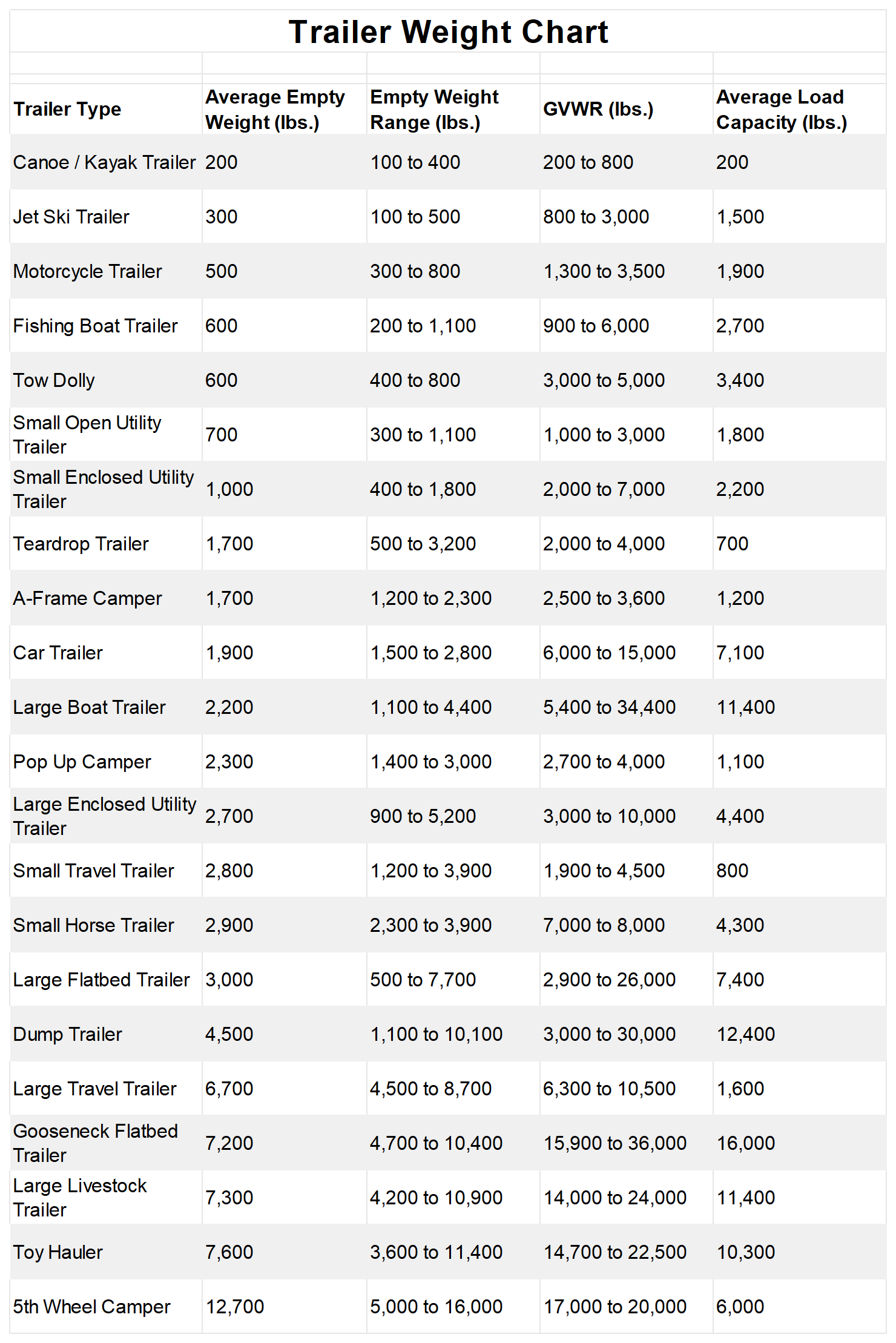
What kind of trailer can tow heavy equipment?
Trailers towing heavy equipment need to have adequate towing capacity, structural strength, proper hitch equipment, suitable brakes, suitable tires and wheels, and a suitable suspension system. These features ensure that the trailer can tow heavy equipment safely and stably and meet the transportation needs of the equipment.
If you have any questions or are unsure about choosing a trailer, please feel free to contact us. At Caesar Trailer, our expert technical and sales teams are ready to answer your questions and assist you in making an informed decision.
Get the latest price? We will reply as soon as possible (within 12 hours)























